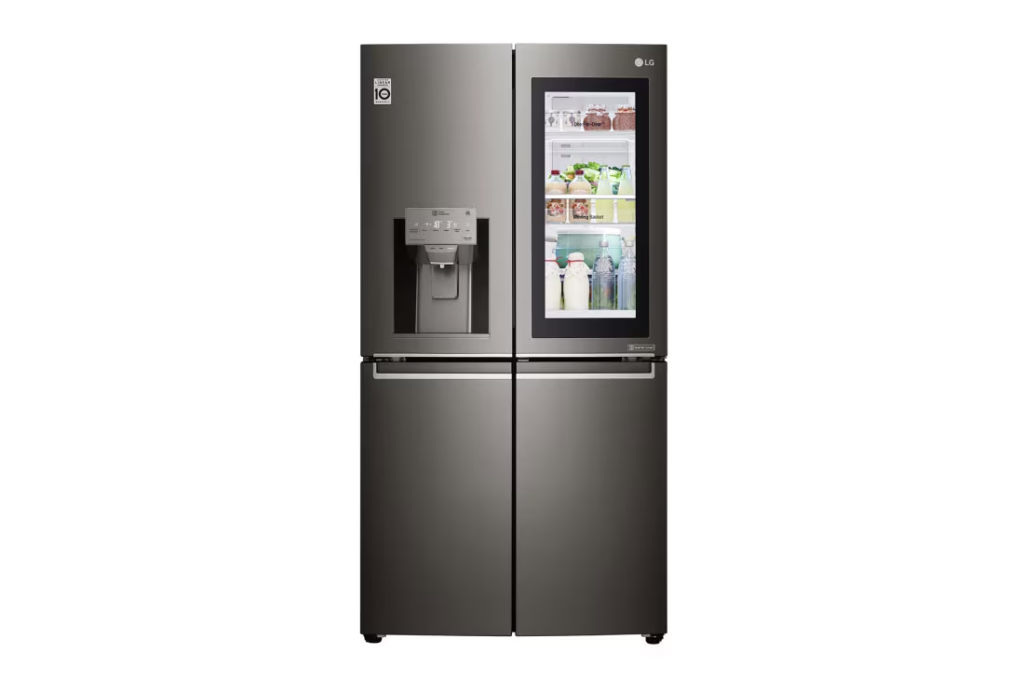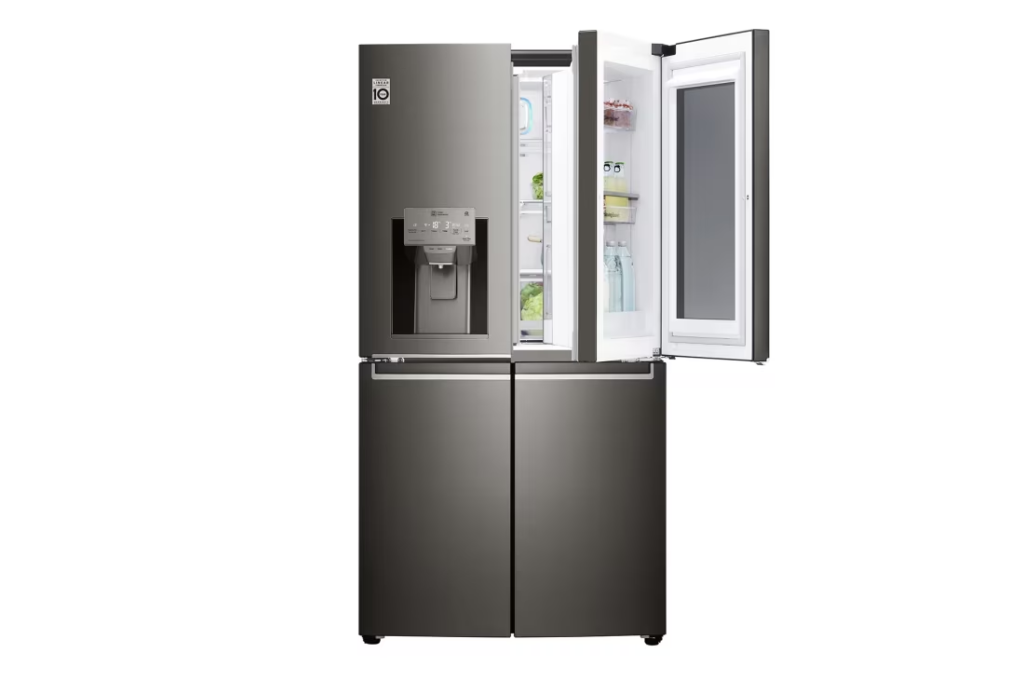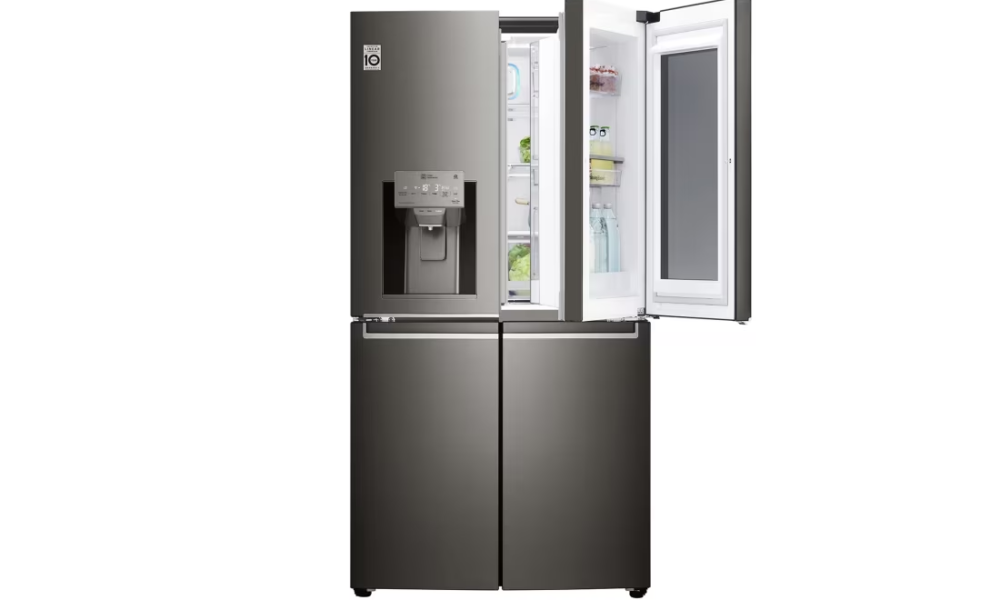Smart refrigerators are transforming the way we organize and handle food in the home. These home appliances have been equipped with modern technology, enabling devices to be linked with the internet, sync across other smart devices, and even offer features such as automatic inventory tracking and personalized settings. As houses get smarter, these refrigerators are gaining popularity among tech-savvy consumers. But are they really worth the investment?
Benefits of Smart Refrigerators
Energy Efficiency and Cost Savings
One of the most appealing aspects of smart refrigerators is how energy-efficient they are. With flawless control over the temperature, these kitchen appliances assist in maintaining everything you consume fresher for longer yet using less energy. Smart fridges also alert you when the door is left open, which might save you money on electricity bills and reduce food deterioration.
Also Read: The Five Most Important Smart Home Tools For Modern Life
Advanced Features
Smart fridges provide an array of technologically advanced capabilities, including:
- Temperature Control: You can regulate the temperature via your smartphone, ensuring that food remains fresh even while you are not at home.
- Inventory Tracking:Some models track the groceries placed inside and give alerts when you run low on specific products, making grocery shopping easier.
- Built-in Cameras:Some refrigerators include interior cameras that allow you to examine the groceries of your fridge using an app—ideal for when you’re at the grocery store and don’t know what to buy.
Convenient Access to Information
Smart fridges connect to Wi-Fi and can display recipes, weather updates, or even your calendar. You can also receive notifications about expired food or maintenance needs, making daily life more convenient and reducing waste.
Cost Analysis
Initial Investment
Smart refrigerators tend to be more expensive than traditional models, with prices ranging from $1,500 to over $4,000, depending on the features and brand. This upfront cost can be a deterrent for many households.
Long-Term Savings
While the initial investment is higher, smart fridges can provide long-term savings through their energy-efficient technology and reduction in food waste. Many smart refrigerators are Energy Star certified, meaning they meet strict energy efficiency guidelines and can lower your utility bills over time.
Model and Price Comparison
Popular brands such as LG, Samsung, and GE offer various smart refrigerator models. For example, the LG InstaView Door-in-Door model starts at around $3,000, while Samsung’s Family Hub refrigerator can go for $4,500 or more. Mid-range options like GE’s Smart French Door Refrigerator are available for closer to $2,500. The price depends on factors like size, smart features, and energy efficiency.

Sustainability and Environmental Impact
Reducing Food Waste
Smart refrigerators’ ability to track inventory and alert you when food is about to expire helps reduce food waste. With the average household wasting 31% of food annually, this can lead to significant savings and a positive environmental impact.
Energy-Saving Features
These appliances are designed to minimize energy consumption through advanced insulation, improved cooling systems, and Wi-Fi-connected sensors. Many smart fridges are also equipped with eco-friendly modes that automatically optimize energy use during low-usage periods.
Greener Lifestyle
By promoting better food management and reducing energy usage, smart refrigerators contribute to a greener, more sustainable lifestyle. This makes them a valuable asset for eco-conscious consumers looking to minimize their carbon footprint.
Security and Privacy Concerns
Data Privacy Issues
Like other smart home devices, smart refrigerators collect data about your usage patterns. This data may be shared with third-party apps or platforms, raising concerns about privacy.
Hacking Risks
Smart refrigerators are connected to the internet, which can make them vulnerable to hacking or unauthorized access. Hackers could potentially gain access to your home network or personal data.
Enhancing Security
To protect your privacy, it’s important to secure your smart refrigerator by using strong, unique passwords and keeping the device’s firmware updated. Additionally, using two-factor authentication and limiting the fridge’s access to sensitive information can reduce risks.

User Experience and Convenience
Integration with Smart Home Devices
Smart refrigerators can sync with other devices in your home, such as smart speakers, lights, and thermostats, making it easy to control everything from a central hub. Some models even allow you to voice-control the refrigerator, adding to its convenience.
Customizable Settings
You can personalize your smart fridge to suit your lifestyle, whether it’s adjusting the temperature for certain food types or getting customized meal planning recommendations based on your diet preferences.
Simplified Grocery Shopping
With automatic inventory tracking and shopping list creation, smart refrigerators can make grocery shopping a breeze. You can check what’s inside your fridge remotely, ensuring you never buy unnecessary items.
Customer Reviews and Testimonials
Real-Life Experiences
Many users praise smart refrigerators for their convenience and high-tech features. A common highlight is the ability to check contents from a mobile app, especially helpful for busy professionals or parents. Some customers also appreciate how the smart fridge helps them reduce food waste and plan meals more efficiently.
Pros and Cons
- Pros: Energy-efficient, advanced features, integrates well with other smart devices, reduces food waste.
- Cons: High upfront cost, potential security vulnerabilities, complex for those not tech-savvy.
Maximizing the Benefits
To make the most of a smart refrigerator, users recommend regularly updating the firmware, using security measures, and exploring all available features such as meal planning apps or grocery integrations.
Conclusion
Smart refrigerators offer numerous benefits, from energy efficiency to advanced convenience features, but their high initial cost and potential security concerns are worth considering. If you’re looking to invest in a more sustainable and convenient kitchen solution, a smart refrigerator can be a valuable addition to your home. Ultimately, whether or not they’re worth the investment depends on your lifestyle, budget, and how much value you place on convenience and long-term savings. As smart home technology continues to evolve, smart refrigerators are likely to become even more advanced and integrated into our daily lives.
